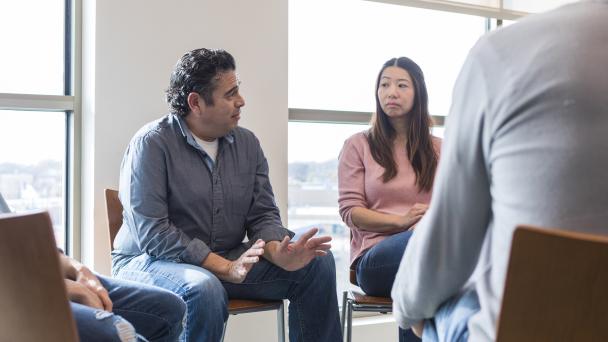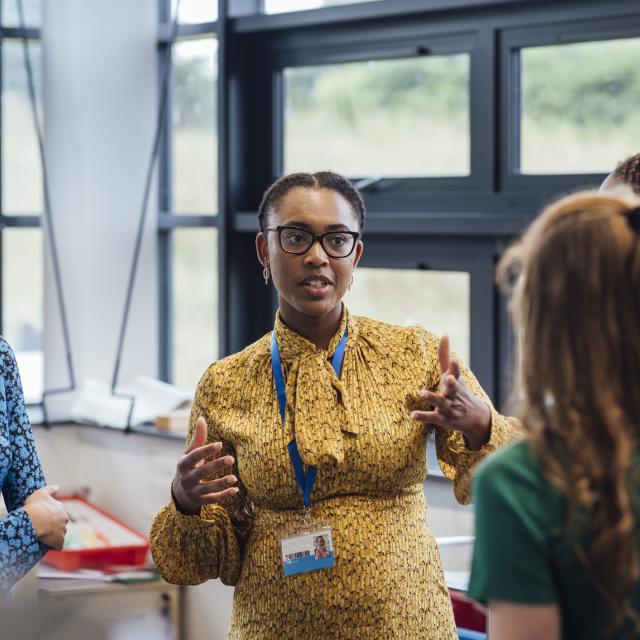The dilemma of local government reform: How to balance efficient services and local needs?


I am a Researcher, working in the Centre for Deliberation at the National Centre for Social Research (NatCen) – where we use a research method that enables the public to make informed decisions about complex or contested topics and decide outcomes and agendas.
Our projects have variable designs and formats and run for different total lengths of time (typically between 12-25 hours). Fieldwork is therefore delivered over anything from a series of 1-3 hour online sessions to full, typically in-person, day or weekend sessions. Topics are often very specialised, contentious, and complex such as gene editing technology for crops, or the public dialogue on the role of Biomass in achieving Net Zero. We also work on broader important and relevant topics, such as the housing emergency, health data or the economy (last year we delivered the Funding the UK’s Future Investments – a Citizens’ Jury project). We also get involved in more experimental work such as exploring the use of AI moderation technology and testing the length of time needed for deliberation. ‘Who’ is doing the deliberating also varies; lots of our projects involve the general public, but we also do stakeholder dialogue work. It is common in nearly all our work to have experts or stakeholders sit on an advisory group to help us with the design and content of the sessions with the public. The variability of our work means that no two project’s deliberations are the same! And there are lots of moving parts.
Just like the variability in the work of the Centre for Deliberation, I also undertake a variety of activities across the life span of a deliberative research project; from assisting with bid writing to a project ending. In my time in the team so far, I have supported with conducting desk research and/or writing up team experience for bids. For projects, I am involved with administrative tasks for projects such as recruitment, participant and freelance facilitator communications and onboarding, arranging transcription, logistics for online and in-person events, tech support in calls etc. This is all in addition to tasks such as creating participant project sheets, session plans and guides, survey designing, material and content design for sessions, facilitation, analysis, and eventually report planning and writing. There is also the opportunity to be a facilitator or help with the analysis for other deliberative projects within the team, as well as the chance to help other teams in NatCen with their project work, such as conducting cognitive interviews or doing rapid evidence reviews.
In our team no two days are the same. Every day you are working on different stages and aspects of a project. Most stages of a project require creativity and it is an open space for you to do it ‘your way’ or build upon what was previously done. This is especially true with the design process; with the project objectives and some steer around content, the workshop formats, designs and visual elements can sometime be completely up to you to create to share with the rest of the team. This keeps me on my toes and means that I am always learning and growing.
I am fortunate to be able to work with everyone in the team on a day-to-day basis. Being on multiple projects, you communicate and meet with all Research Directors (RD) and Senior Researchers (SR). Outside of projects, a Researcher can help out with bids which requires working with the RDs and SRs you may not necessarily be on a project with and the Centre Director. Our team is also very big on being collaborative, regularly having impromptu group brainstorms or discussions on projects, theories and aspects of deliberation. While myself and the other Researcher on the team are usually working on separate projects, we support one another where necessary on things like administrative processes and trialing programmes or software functions – for example, we are pretty good at Miro now!
Having a natural sciences research background, I have been used to being bound to rigid theory and methodology, with little room for flexibility in interpretation or approach; whether that be the methodology to collect data, or analysis. Therefore, my biggest learning curve coming into deliberative research, which is a social science, was ‘allowing’ myself to make over-arching higher-level interpretations. These interpretations are grounded in the data, facilitator observations, and context learnt by involvement in the entire research project process and learning from the project. Being comfortable with the fact that you are best placed to make the interpretations is important. It is also important that you are comfortable with working with the public in a group setting as a facilitator (in-person and online), and ‘good facilitation’ is what generates the rich data needed to answer the research objectives and write an insightful and impactful report.




Receive a regular update, sent directly to your inbox, with a summary of our current events, research, blogs and comment.
Subscribe